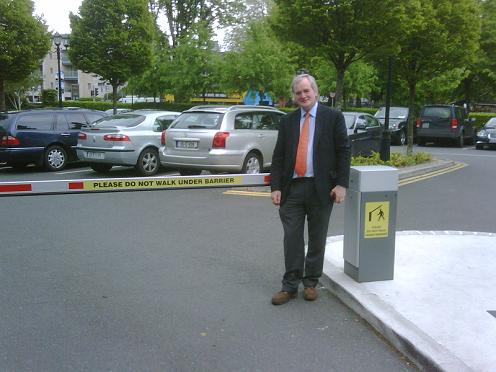
There are some people you can listen to for hours, and some that send you to sleep when they open their mouth.
Willem Buiter definitely falls into the first category – who said I fall into the latter? – which is why we invited him to address the Financial Services Club recently.
It happened to be on the day when Standard & Poor’s caused the UK stock markets to take a bit of hammering as they warned that the UK might get a credit-downgrade from the country’s AAA rating.
Great.
Stock markets went down about 3% that day, and everyone got the jitters. It’s all bounced back since of course, but there’s nothing like sending a scare story into the markets to get us all worried.
Vanessa Rossi, Senior Research Fellow, International Economics at Chatham House, writes an interesting piece on this subject:
“The threat to the AAA credit rating means the UK has been served a rude awakening over the risks posed by wallowing in its economic problems and not fighting back regarding its relative strengths. While other countries have carefully have protected their image - often with little justification in the economic data or even in terms of financial sector behaviour - UK PLC has seemed bent on shooting itself down.”
Willem was more sanguine about the whole affair, saying that the credit rating agencies had just been too gregarious about Lehman Brothers and more before this crisis hit:
"Rating agencies have so much egg on their face they could make an omelette, and are too over-cautious now."
You make your own mind up, but I was pleased to see that Willem’s views made the headlines over at Bloomberg News, as he was interviewed by them at the Club meeting that night.
For those unfamiliar with Willem, he is a fascinating guy:
Professor of European Political Economy at the London School of Economics and Political Science and a former chief economist of the EBRD, a former external member of the Monetary Policy Committee, as well as adviser to international organisations, governments, central banks and private financial institutions worldwide.
Willem is best known to me as the chap who writes the ever insightful maverecon blog at the Financial Times, where he makes lots of serious commentary such as:
“Unlike the gormless arts students, limp-minded lawyers and woolly social scientists that dominate British and American economic policy making, President Trichet actually knows and understands mathematics. An inflection point is not a turning point.”
May 13, 2009
and
“Economics as a science and economic reality have never had problems with negative real (inflation-adjusted) interest rates. So what is the problem with nominal rates? In a word, it’s currency.”
May 7, 2009
He also has more outspoken views, such as:
“Obushma-Biney in the Home of the Frightened: The spinelessness and moral cowardice of the Obama administration know no bounds.”
May 23, 2009
and
“Google is to privacy and respect for intellectual property rights what the Taliban are to women’s rights and civil liberties.”
April 29, 2009
As well as a good dose of humour, as illustrated by this entry on May 17th:

“I was surprised, when visiting Dublin, to discover just how short some of the locals must be. The consequences of the potato famine still appear to be with us.”
Anyways, Willem gave a spirited and fascinating presentation on the state of the nation, the economy and the green shoots of recovery.
He began by saying that we are not actually in a state of recovery yet. In fact “we are dying and still dying, just more slowly”. Nothing like stating the case for a drama is there?
In fact, unlike Stéphane Garelli who thinks we have come out of the slump, Willem claims this is an L- and W- shaped recession, rather than a V- or U- shaped downturn. Hence, we are still riding through the bouncing deep W right now and not yet in the upturn.
“When you see financial institutions have more lawyers than those chasing deals, you know something is wrong.”
Too true, too true.
Another insightful comment was that “there has been no significant deleveraging of the banking system yet, but will see issues in cross-border operations and London is the home of cross-border banking”.
I’m not sure I like that insight.
Willem attacked a few other aspects of change.
For example, the G20 summit came out with lots of issues, including an attack on tax havens. Willem asked about tax havens and hedge funds and private equity.
“These had nothing to do with the crisis but are now included in regulations. Why? Penalising the funds that will generate recovery is bad for business.”
I agree with that insight.
In fact, Willem went as far as to say that the USA has become socialist by being such an interventionist government. Hmmm.
Anyways, here’s Willem in action talking about the sort of capitalism we may see in the future:
If you weren’t able to play that due to your Firewall, he says that finance is too easily scalable in both directions to allow it to have the leverage model it has enjoyed historically. Unlike manufacturing or airlines which are limited by plant size scale and number of aircraft, finance can scale in an unlimited fashion. It is the difference between a physical industry and a virtual one.
For these reasons, regulation will limit leverage and place far more severe restraint over the leverage model in the future to avoid the liquidity risks we have experienced in 2008-09.
This seems spot on and, in hindsight, is obvious isn't it? Yet, we continually experience bad leverage as demonstrated by Barbarians at the Gate, a book that is now over 20 years old and yet the news is still the same.
Leverage creates liquidity ... but too much leverage creates bad liquidity.
The question is: what is the right level of leverage / liquidity risk?
Meanwhile, I wondered about finance being a virtual industry? No wonder virtual currencies and social finance is becoming so important!.
Willem’s full slide set and video of his presentation may be watched by Financial S
ervices Club members, including access for those outside the UK who are remote members.
Well worth the viewing.
The Finanser is sponsored by Vocalink

For details of sponsorship email us.
Chris M Skinner
Chris Skinner is best known as an independent commentator on the financial markets through his blog, TheFinanser.com, as author of the bestselling book Digital Bank, and Chair of the European networking forum the Financial Services Club. He has been voted one of the most influential people in banking by The Financial Brand (as well as one of the best blogs), a FinTech Titan (Next Bank), one of the Fintech Leaders you need to follow (City AM, Deluxe and Jax Finance), as well as one of the Top 40 most influential people in financial technology by the Wall Street Journal's Financial News. To learn more click here...

